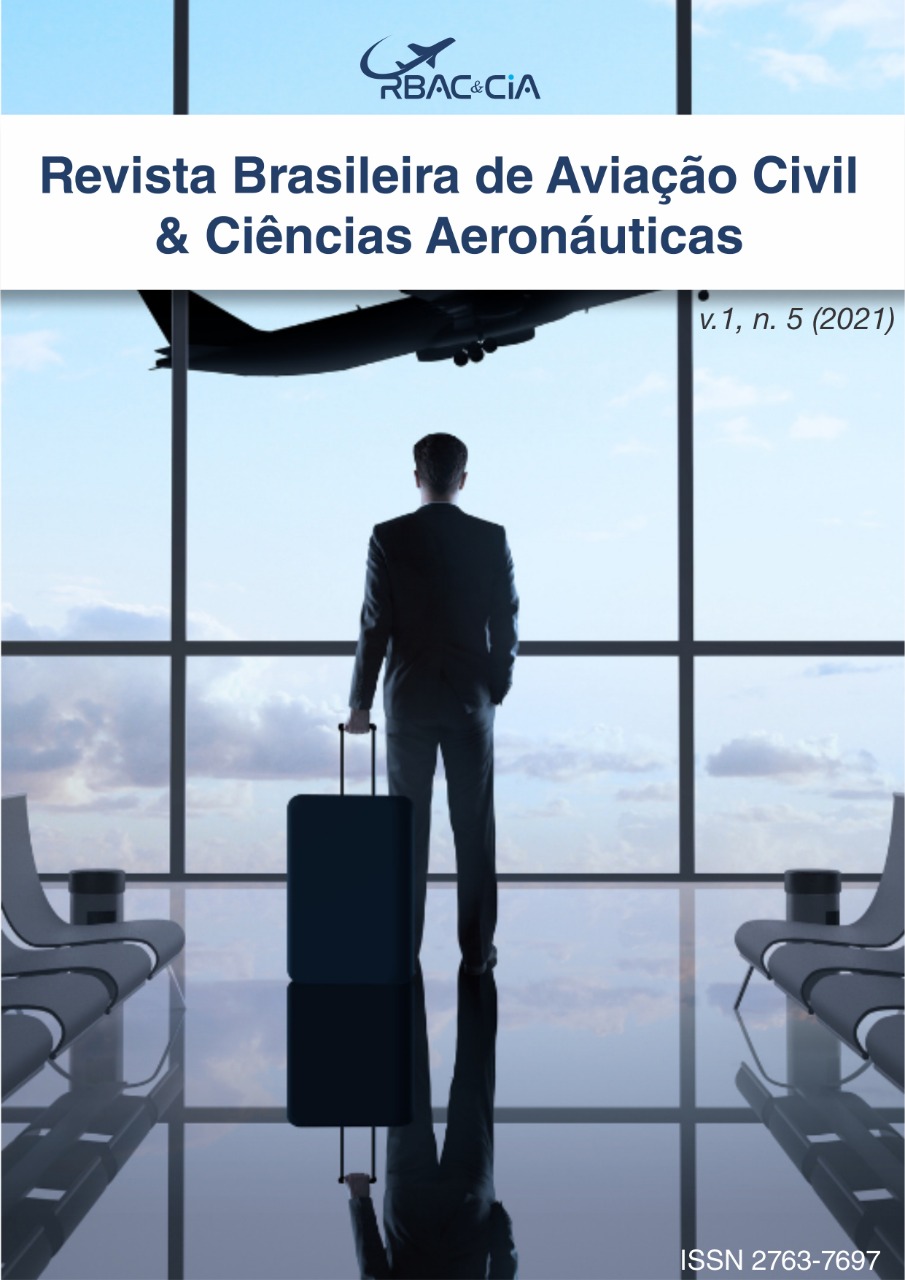CONSIDERAÇÕES SOBRE A EXIGÊNCIA DA CERTIFICAÇÃO DE PILOTOS DE RPA CLASSE 3 PARA A ATUAÇÃO PROFISSIONAL: UM CENÁRIO NACIONAL E MUNDIAL CONSIDERATIONS ABOUT THE REQUIREMENT OF PILOT CERTIFICATION CLASS 3 RPA FOR PROFESSIONAL PERFORMANCE: ONE NATIONAL AND WORLD SCENARIO
Conteúdo do artigo principal
Resumo
Drones fazem parte da sociedade contemporânea, quer pelo sucesso militar ou por sua popularização. São sinônimo de inovação e modernidade no imaginário coletivo, mas também podem representar riscos e ameaças à aviação convencional. Nos primórdios desta tecnologia, somente aventureiros conseguiam manter as aeronaves em voo, pois os controles exigiam grande habilidade motora, as baterias possuíam curta duração e os precários rádios transmissores limitavam o alcance a centenas de metros. A partir da metade da década passada, o avanço e o barateamento de tecnologias como posicionamento por satélite (GPS), sensores inerciais, capacidade de processamento embarcado, captura de imagens e vídeos em alta definição e transmissão digital permitiram a criação de aeronaves remotamente pilotadas fáceis de voar, com alcance de quilômetros, disponíveis para aquisição no varejo por valores equivalente a um smartphone topo de linha. Com este novo segmento da aviação, surgiram novos serviços, novos profissionais, novas situações e desafios a serem resolvidos pelos órgãos de regulação e controle aeronáutico. Esta pesquisa tem como objetivo compreender o impacto da exigência de certificação de pilotos de RPA Classe 3 para atuação profissional no mercado brasileiro e como essas consequências se produziram nos países que adotaram essa exigência antes do Brasil. Caracteriza-se como uma pesquisa exploratória com procedimento bibliográfico e documental, bem como pesquisas de campo e análises qualitativas e quantitativas. Ao finalizar a pesquisa, conclui-se que a regulação de drones nos países estudados estão em diferentes estágios, assim como o mercado de serviços e profissionais. Também se percebe uma tendência à convergência ao modelo proposto pela OACI, focando em cenários operacionais, análise de risco e performance. Vimos ainda que o país que adotou a exigência de teste obrigatório dos pilotos de RPA Classe 3 para uso profissional desde o início da regulação teve um bom resultado, garantindo a adoção da tecnologia e mantendo o controle do espaço aéreo. No Brasil, os dados das agências reguladoras revelaram o vigor do setor e da adoção da tecnologia pela sociedade civil. As pesquisas de campo revelaram que tanto os profissionais responsáveis pela operação de aeródromos e tráfego aéreo quanto os pilotos remotos profissionais reconhecem na certificação um benefício ao setor.
ABSTRACT
Drones are part of contemporary society, either because of their success in military use in recent years, or because of their popularization. They are perceived as synonym of innovation and modernity in the collective imagination, but they also can represent risks and threats for some members of conventional aviation. In the early days of the civil use of this technology, only truly capable adventurers were able to keep the aircraft in flight, due to difficulties, such as controls that required great motor skills, short time batteries or even the precariousness of analogic radio transmitters that limited the operational range to hundreds of meters. Since the middle of the last decade, the advance and cost-effectiveness of technologies such as satellite geo positioning system (GPS), inertial sensors, on-board processing, high-definition image and video capture and digital transmission capacity allowed the creation of remotely piloted aircraft that were easy to fly, with range of kilometers, and available for purchase in retail stores for values equivalent to a high-end smartphone. With this new segment of the aviation, new services, new professionals, new situations and challenges emerged to be solved by the regulators and aeronautical control boards. In this scenario, this research aims to understand the impact of certification requirements for professional use of Class 3 RPA in the Brazilian market and the effects of theses regulation in countries that adopted them before Brazil. It is characterized as exploratory research with bibliographic and documental procedure, in addition, field research, qualitative and quantitative analysis. At the end of the research, it is concluded that the laws in the countries studied are at different stages, as well as the services market and professionals. We also find in it the convergence trend for the model proposed by ICAO, focusing on scenarios, and on risk and performance analysis. We also have noticed that the country that has adopted the mandatory test requirement for UAV remote pilots for professional use since the beginning of the regulation has had good results, ensuring the adoption of the technology and maintaining control of the airspace. In Brazil, data provided by regulatory agencies revealed the strength of the sector and the adoption of technology by civil society. Field research revealed that both professionals responsible for the operation of aerodromes and professional pilots recognize remote pilot certification as a benefit to the sector.
